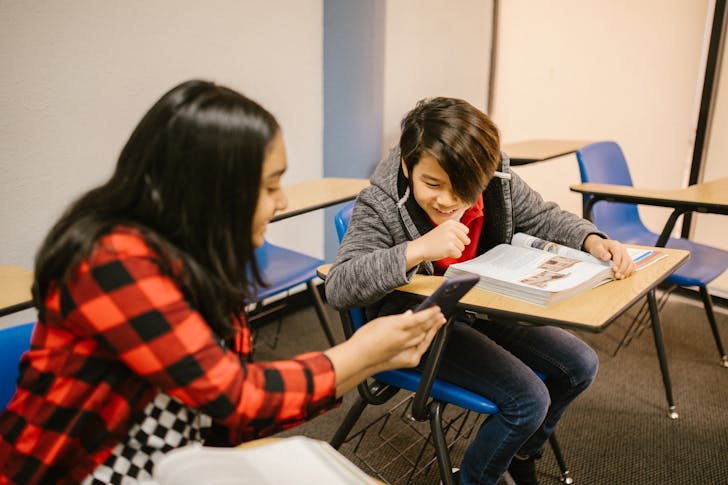If you’ve spent the past few years side-eyeing your child’s phone like it’s a ticking time bomb for their mental health, you’re not alone. The warnings have been loud, persistent, and at times, moralistic: screen time equals brain rot, social media equals teen misery. But a new study out of the University of South Florida is forcing a reassessment—and not in the way the panic-mongers were expecting.
The study surveyed 1,500 middle schoolers between the ages of 11 and 13, asking about phone use, self-esteem, anxiety, and depression. What turned heads wasn’t just the numbers, but the pattern: kids who owned smartphones tended to report better self-esteem and fewer symptoms of depression than those without. That’s not a typo. In some key ways, the kids with the devices were mentally better off.
A Phone Isn’t a Mind-Control Ray | It’s a Tool
Here’s where things get interesting. The data didn’t suggest that more screen time made kids happier, or that endless scrolling through content was suddenly therapeutic. What mattered—actually mattered—was what they did with their phones. Texting a friend to meet up? That’s different from doomscrolling until 2 a.m. or chasing likes on a filtered selfie.

RDNE / Pexels / Per the research, children who had smartphones were more likely to spend time with friends in person. This suggests that smartphones may actually facilitate real-world social interactions rather than replace them.
In fact, kids with smartphones were more likely to spend time with their friends in person, not in theory, not in some digital metaverse, not in the actual, physical, sticky-floored skate rink or mall food court sense. That flies in the face of the “phones-are-ruining-childhood” narrative, which tends to paint technology as a substitute for human contact, not a bridge to it.
Confidence in Their Pocket?
One of the more surprising stats: 80% of kids with smartphones said they didn’t feel depressed, compared to only 69% of their phoneless peers. And before you dismiss that as correlation, consider what smartphone ownership often represents to a 12-year-old. Independence. Belonging. A sense of being part of the social current, not stuck paddling upstream.
Phones are often kids' social lifelines. Not in a philosophical sense, but in the plain reality of getting invited to the group chat, staying in the loop, and not missing a birthday hang because the invite came through Snapchat. When kids feel left out of that ecosystem, it’s not about the phone—it’s about exclusion. And exclusion, as any adult with a social history can tell you, cuts deep.
When the Scroll Turns Sour
That said, not all screen time is created equal. The study did catch something many of us have seen firsthand: the darker side of social media. Posting regularly—especially when it revolves around appearances or popularity—was linked to higher levels of anxiety and depression. And frankly, that tracks. Social media is engineered for comparison, and middle school is already a masterclass in insecurity.

RDNE / Pexels / The suggests that it is not the phone itself that is harmful, but the nature of the activities kids engage in on their phones.
There’s a difference between texting a friend about weekend plans and compulsively refreshing a feed to see if your post got enough validation to count as “cool.” One connects, the other extracts. And kids, like adults, can get lost in that loop unless someone teaches them how to step back.
Stop Counting Hours, Start Watching Habits
If there’s one thing this study makes clear, it’s that obsessing over screen-time limits misses the point. Two hours of FaceTime with a best friend is not the same as two hours of algorithm-fueled YouTube. The content—and the context—matter. A lot.
That doesn’t mean tossing out every concern about smartphones. Parents still have reason to be vigilant, especially when it comes to sleep disruption, social comparison, and compulsive checking. But it’s time to shift the focus from blanket restrictions to intentional use. Ask what your kid is doing on their phone. Who are they talking to? How they’re feeling afterward. And don’t assume silence means satisfaction.
Because in the end, the real issue isn’t the phone. It’s how we raise kids to use it—thoughtfully, socially, and, when necessary, to unplug altogether.
